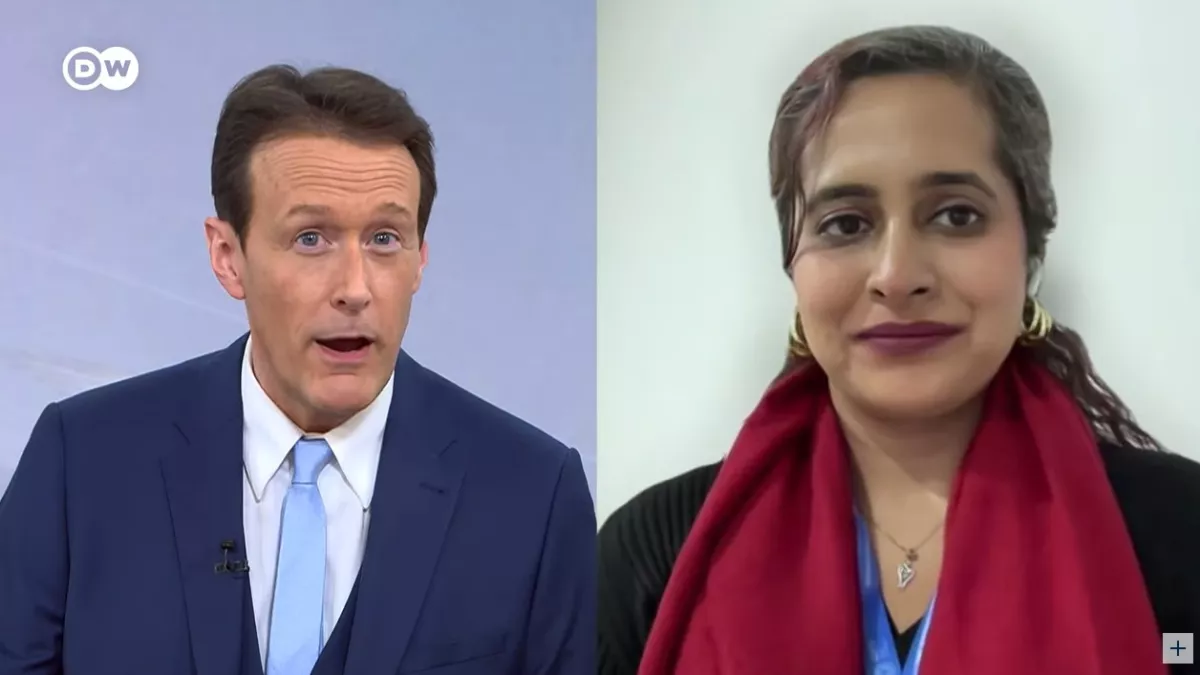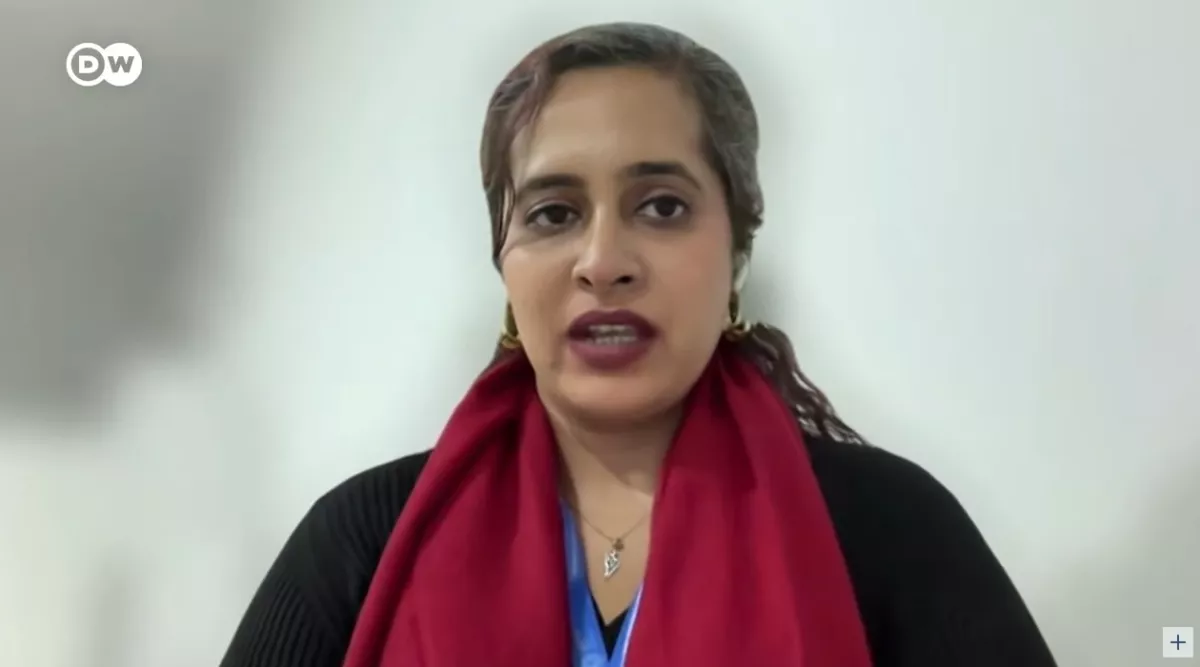Deutsche Welle's false currents: Manipulating COP29 narrative Waves of bias crash at Caspian coast
The COP29 conference, which certain foreign groups attempted to sabotage for nearly a year, is flourishing in Azerbaijan’s capital. This success has been hard to ignore, even by Western media. However, not everyone in the West is thrilled by this outcome, and some outlets have resorted to spreading misinformation, manipulating facts, and even pushing fake news to discredit the host nation of the summit.
Unfortunately, the German state-funded media outlet Deutsche Welle (DW) has found itself in hot water over its coverage of COP29. The format and angle of their report weren’t unexpected, but several aspects of it warrant attention.
The story kicks off with a protest against the conference, spearheaded by the well-known activist Greta Thunberg and supported by anti-Azerbaijani factions. Interestingly, the protest didn’t even take place in Azerbaijan, but the typical narrative was spun: Azerbaijan, as an oil and gas nation, has no business hosting a climate conference. This argument seems increasingly illogical, especially considering that, as President Ilham Aliyev pointed out at the opening ceremony of the World Leaders Summit at COP29 on November 12, Azerbaijan’s share in global oil production is a modest 0.7 per cent, and in natural gas, just 0.9 per cent.
What’s particularly striking is how DW journalists attempted to manipulate the facts to influence the viewpoint of India’s representative at COP29 in Baku, Madhura Joshi, a senior associate with the Energy Transition League, and by extension, their global audience.

Journalist asks: "Tell me about your first impressions. Does Azerbaijan's role as a host have an influence on where this meeting will end up?"
Joshi responds: "I think what we see now in terms of the agenda at COP29 we know that the urgency of action is very critical. We are coming to the COP right now on the back of extreme weather events with devastating floods, and record-breaking temperatures that have strained economies and exacerbated energy and economic insecurity. Hence, I think as the climate impact mounts it becomes abundantly clear that the world must accelerate climate action and I think you can see that urgency for the need to accelerate climate action and as well as finance climate action. So I think from this perspective there is urgency within the room."
However, her answer clearly didn’t sit well with the DW journalist, who immediately followed up with a leading question: "It comes in stark contrast with the fact that the host country Azerbaijan is a country that is a wash in petrodollars, and fossil fuels. I mean is there a contradiction in terms of advancing the goals of mitigating climate change?"
Joshi responds: "I wouldn't say there is a contradiction, but in fact, this is the challenge we are looking to solve as Azerbaijan's heavy reliance on fossil fuels in both terms of trade and domestically is going to be unsustainable in the future. What this requires is an increase in renewables, in clean energy solutions, and transition planning for that, phasing down fossil fuels. That's going to be emblematic to all countries that are relying on fossil fuels. I think not only Azerbaijan but other countries will need to work on production, consumption and demand. I think this progress is happening globally but a lot more needs to be done to get us to the line and keep the par temperature aligned."
The journalist is again dissatisfied with the answer and presses on: "Azerbaijan is one of the many countries that has seen its greenhouse gas emissions continue to rise. Does that make it perhaps ironically easier to address the issue of CO2 emissions at this conference?"

Joshi responds: "I think addressing CO2 emissions is a larger issue. You have to target figures, but essentially the route to get there is through accelerating mitigation action. Something that was spoken about is the COP28 energy package. This requires a full-package approach: you need to triple renewable energy, you need to double energy efficiency along with phasing out fossil fuels - one that can not happen without the other one. And I think what we see in this context for a country like Azerbaijan is that the current renewable contribution is about 2% of the energy mix. They have taken some plans on the increase renewable energy capacity, they have targets of 5 gigawatts of wind and solar projects by 2030.
However, there is a lot to be done and the COP is the venue that can help demonstrate what is the art of the possible, and what steps are needed to implement the COP28 package which helps us in meeting the 2030 clean energy goals but also helps us in tracking the roots for phasing down the fossil fuels by mid-century. I think that from the point of view of securing the supply of electricity, and supply of energy it's becoming increasingly clear that investment in renewables is going to be a key and it's more of an opportunity for Azerbaijan to use this platform to also grow and figure out their transition plans."
As observed, the Indian environmentalist remained unshaken by the provocation, while DW once more exposed its underlying bias and partisanship. Although this comes as no surprise, it’s important to shed light on the tactics of those who, driven by political agendas, manipulate the truth and mislead their viewers.








